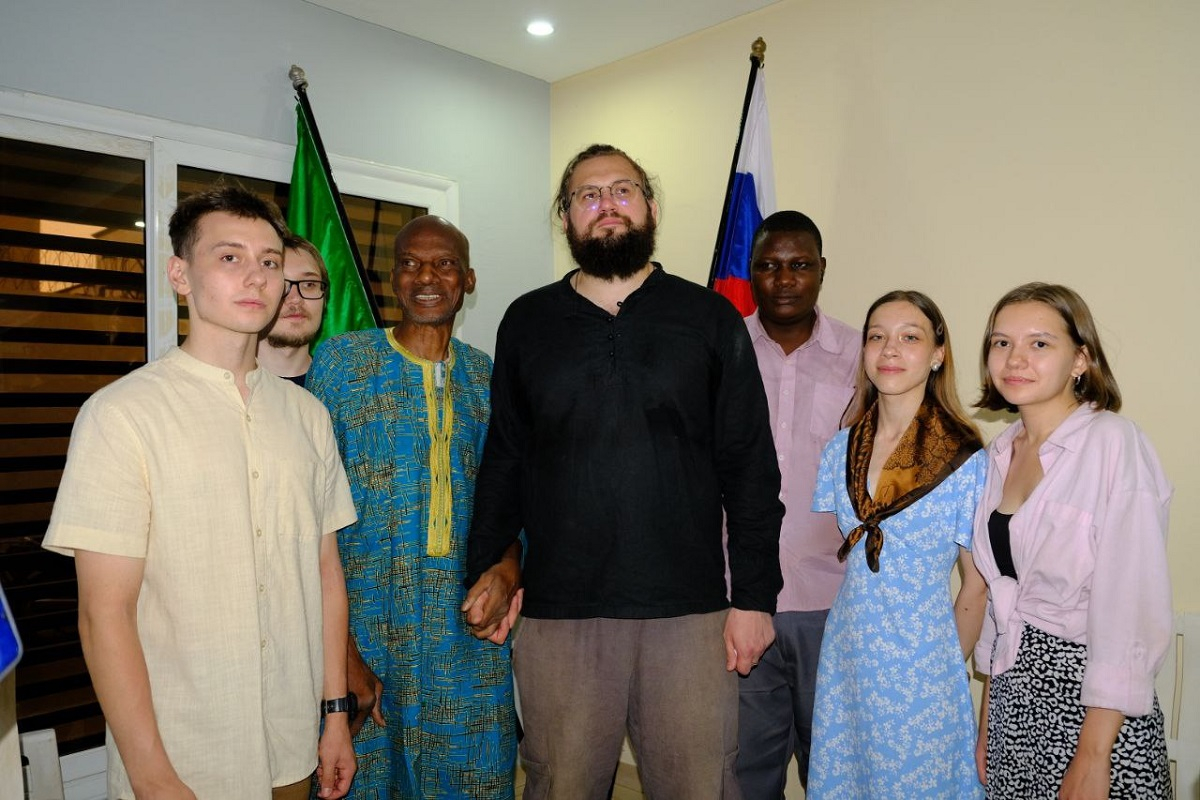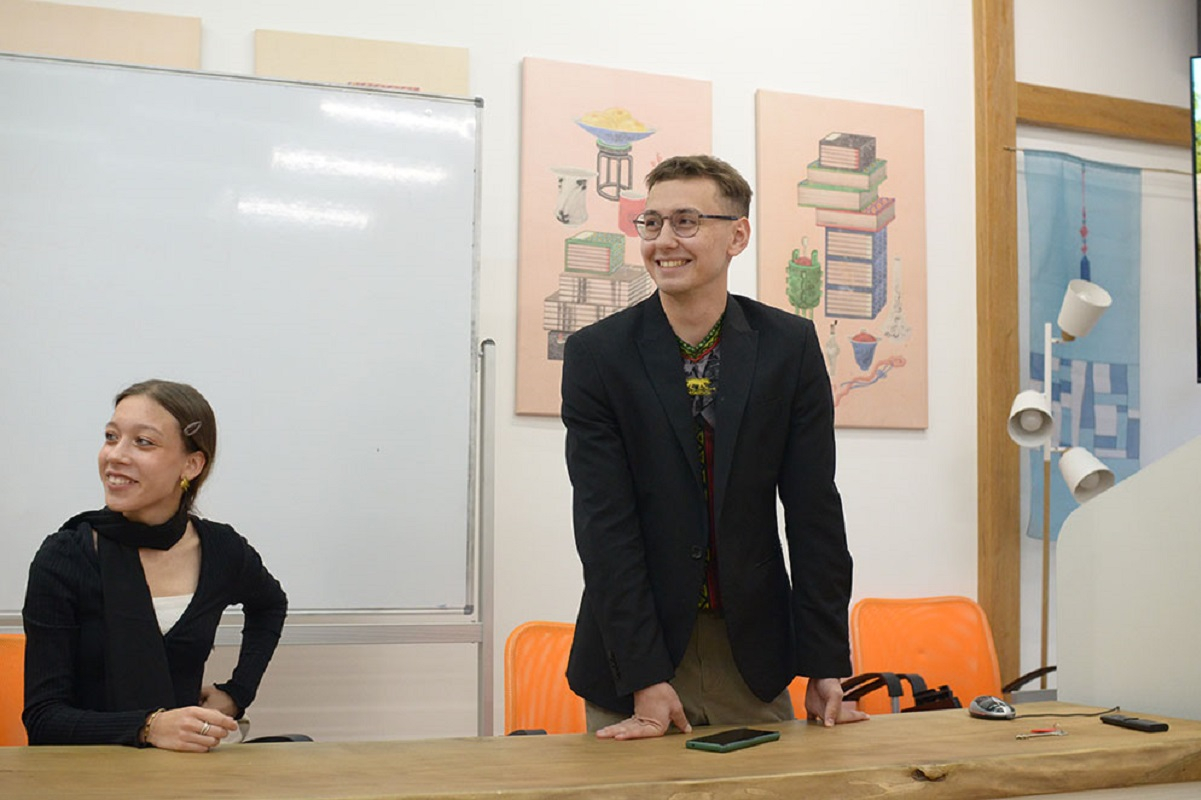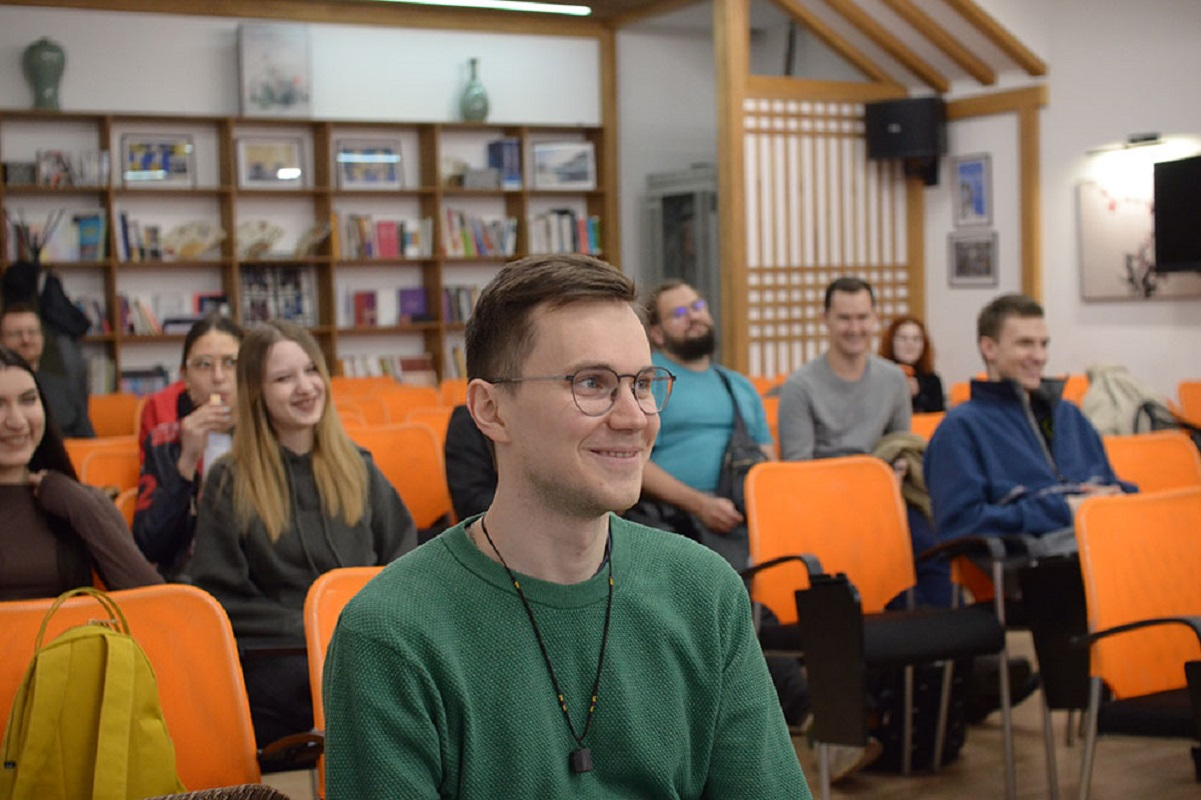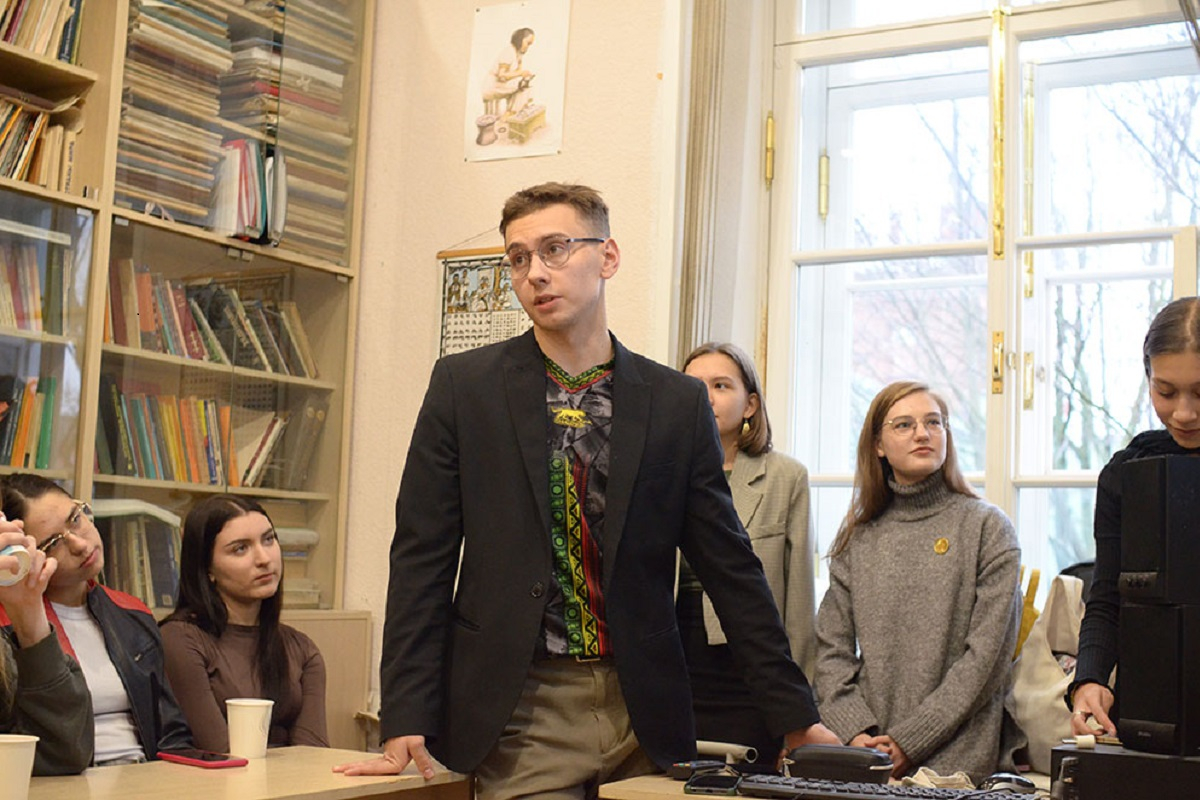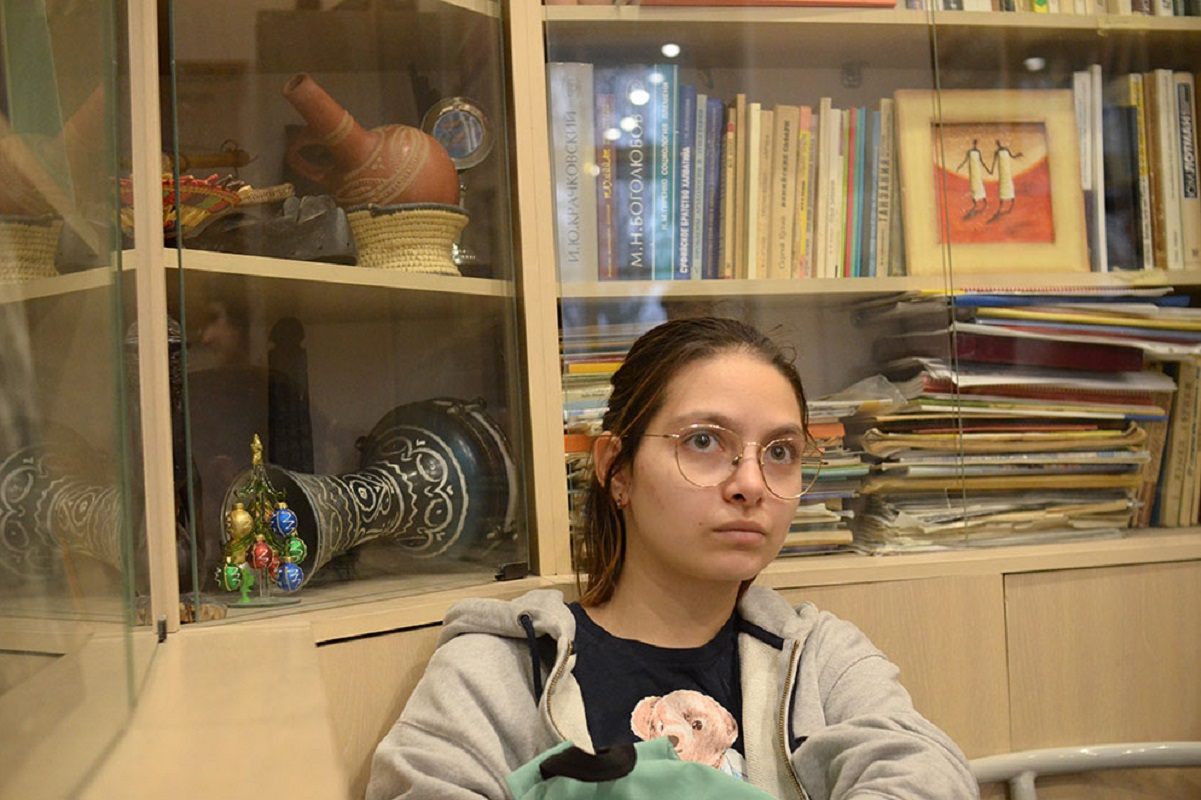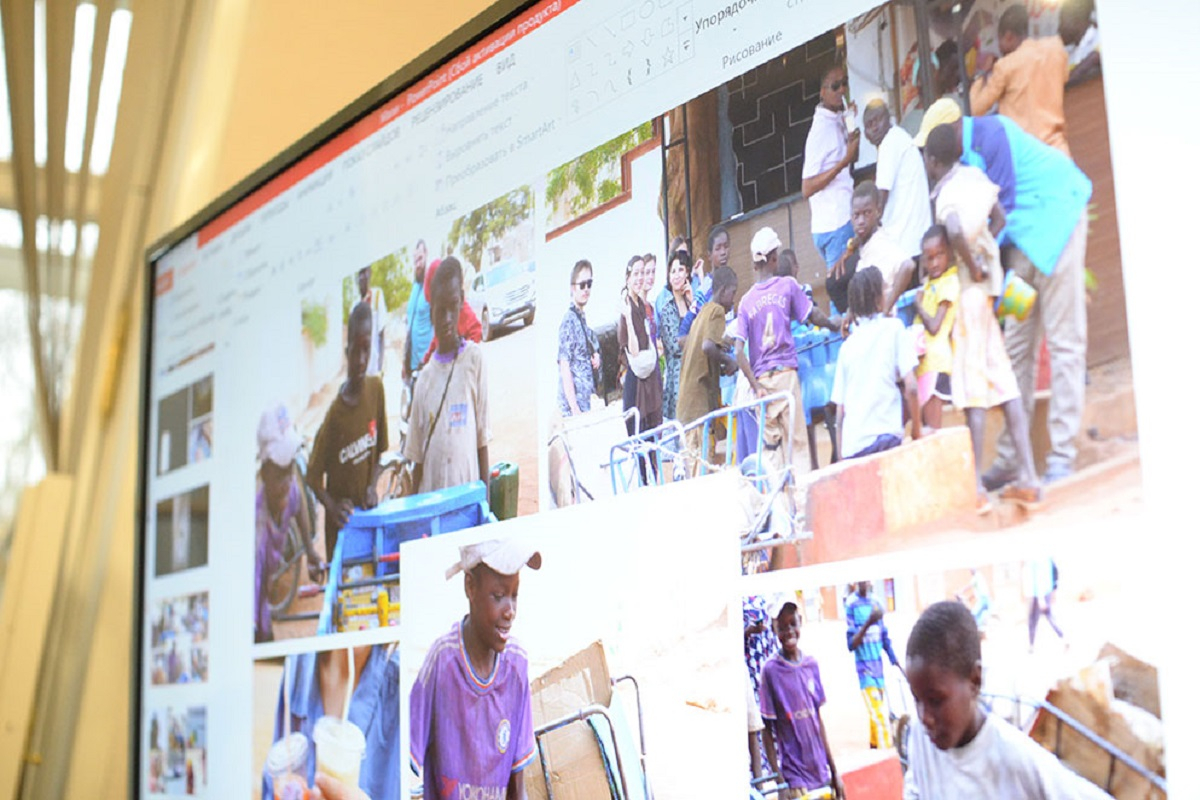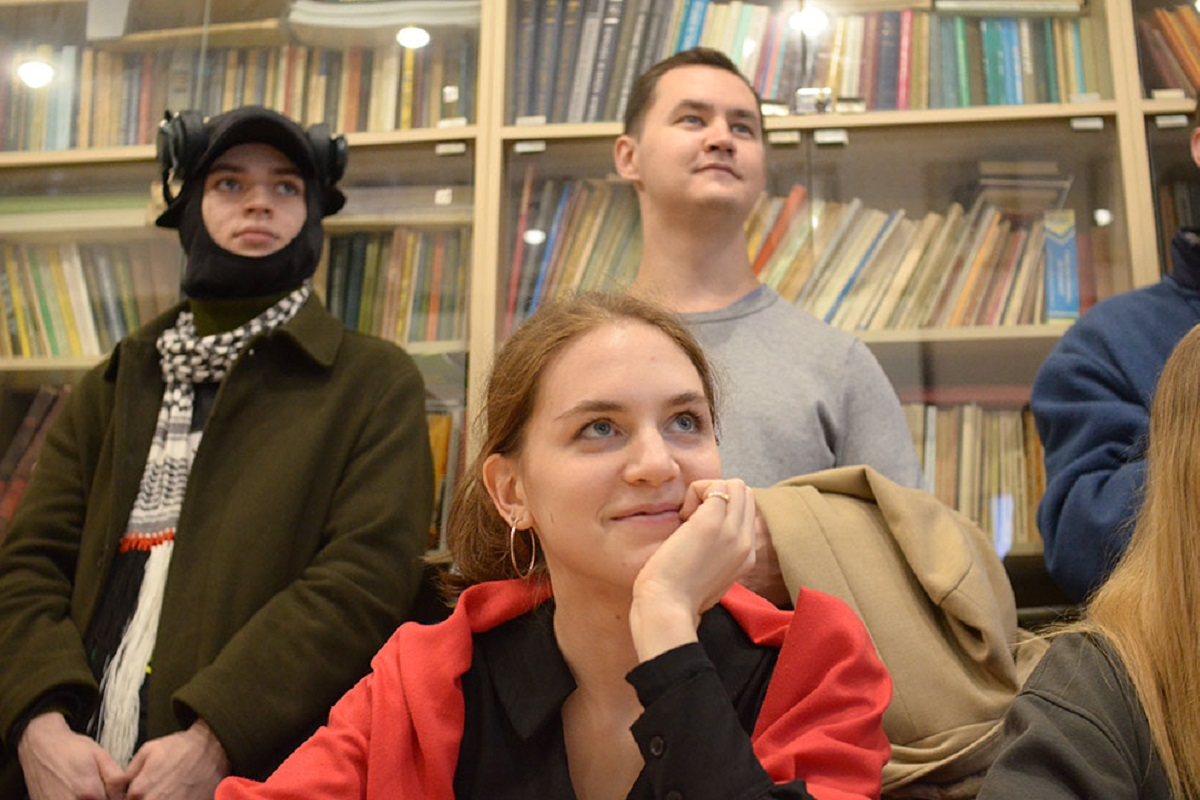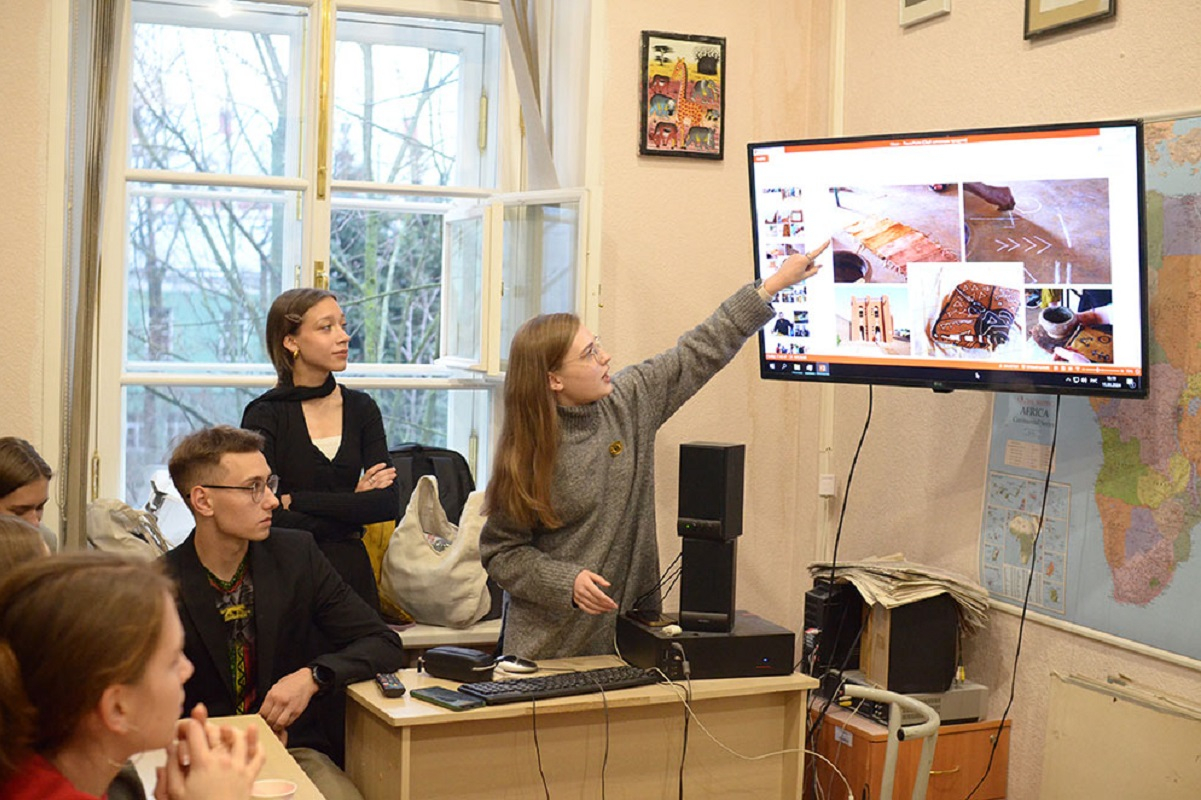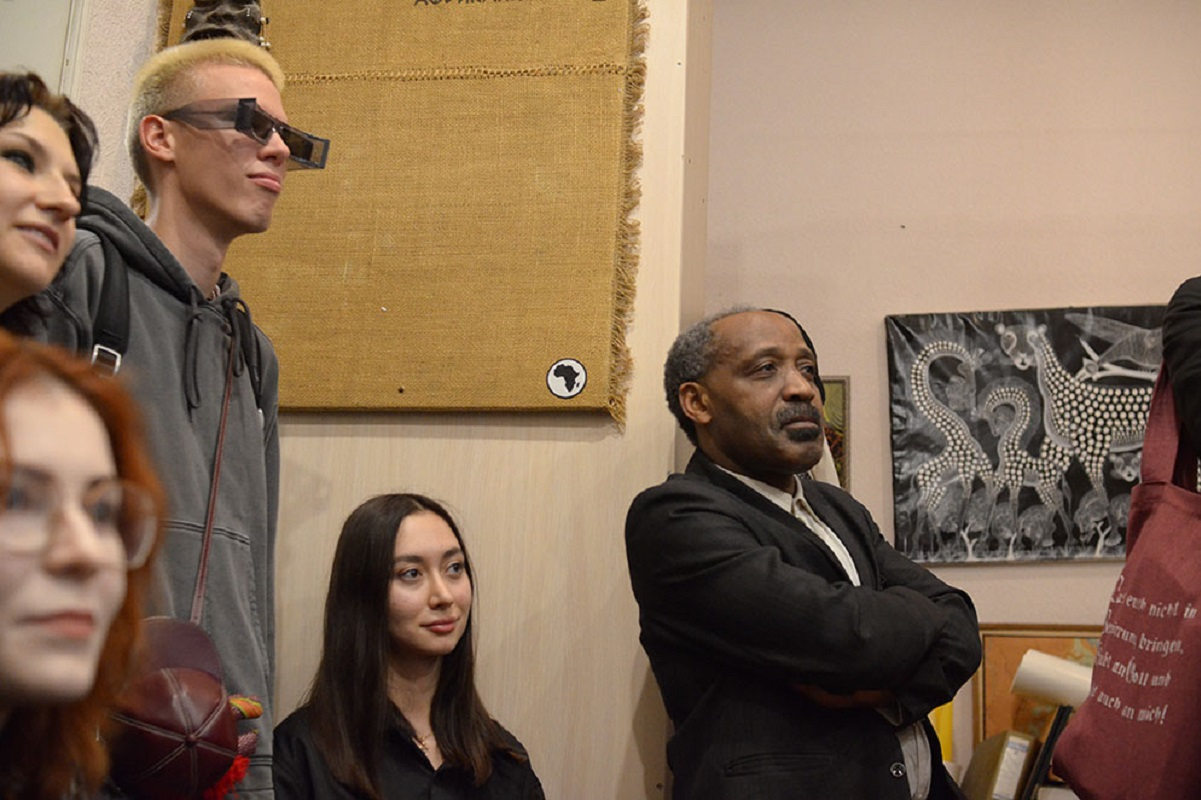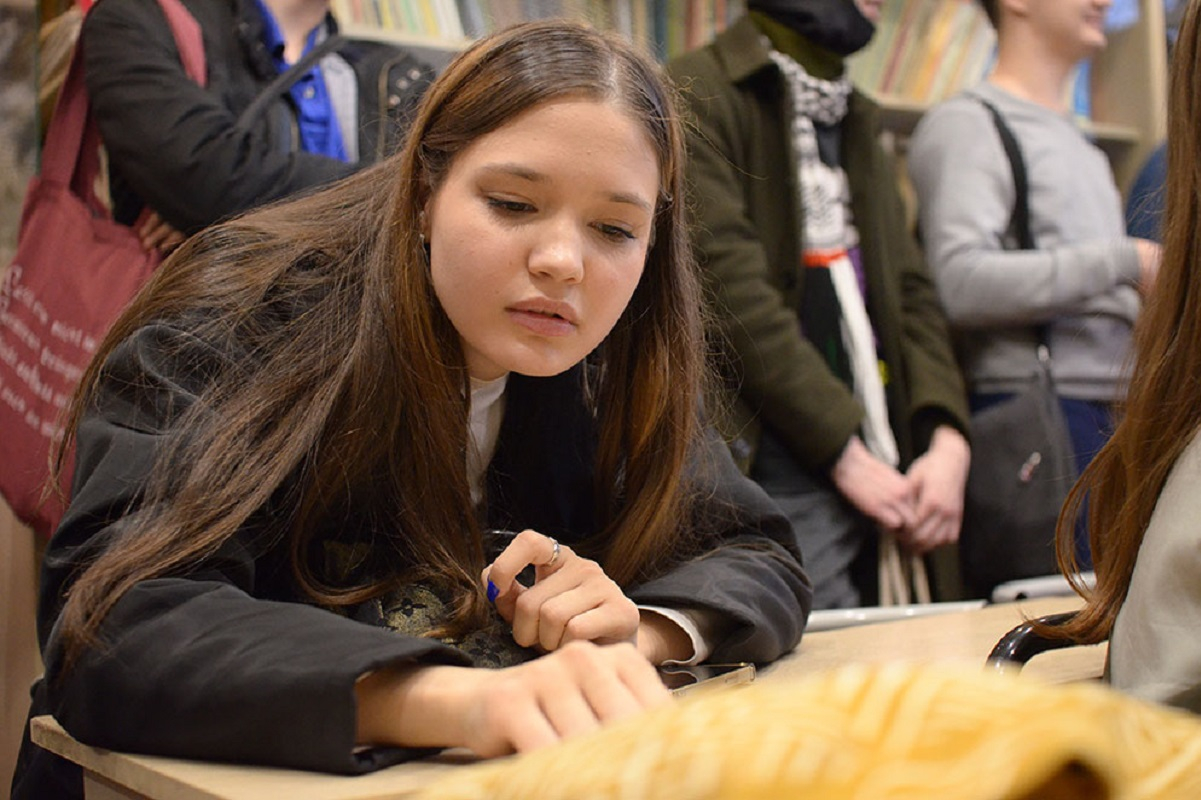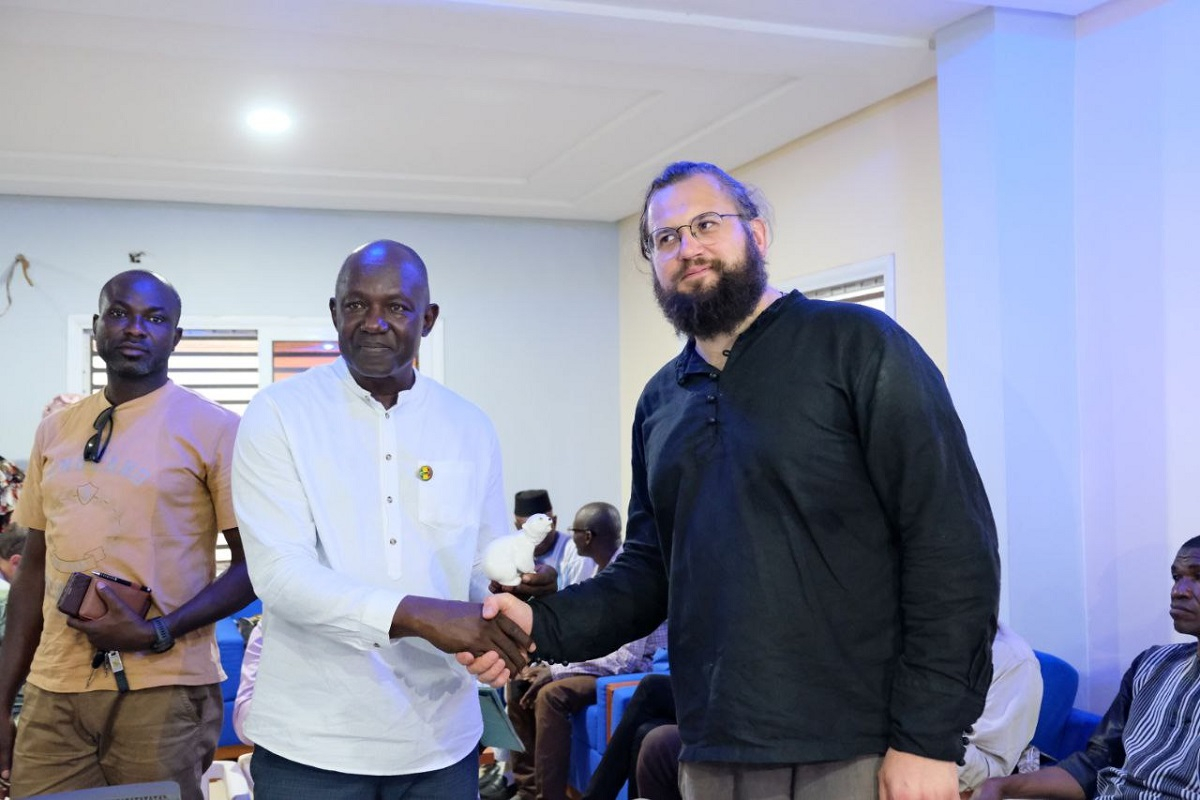A country where incongruous things come together: St Petersburg University students visit the Republic of Mali
Among the most cherished dreams of every student in Asian and African studies is to see their target-language country. Students at St Petersburg University were lucky to visit the Republic of Mali together with Artem Davydov, Associate Professor in the Department of African Studies at St Petersburg University.
Grigorii Kaigorodov, Olga Pevzner, Iuliia Ilekhmetkina, Alina Gabitova, Zlata Andreeva, and Grigorii Zonov are third-year students in "Languages and Cultures of West Africa". They study the languages and culture of the Mandinka (or Mandingo) peoples, who inhabit countries such as Mali, Guinea, Côte d’Ivoire, Burkina Faso, and Senegal. The two main languages in these parts are Bamana (also known as Bambara) and Maninka (also known as Malinke).
Following the 2023 Malian constitutional referendum, Mali drops French as an official language.
Artem Davydov, Associate Professor at St Petersburg University, was invited to the capital of Mali, the city of Bamako, to provide assistance in the training of teachers and the presentation of the author’s textbook of Russian as a foreign language, adapted for the Bamana language. This publication is part of the series "We are learning Russian" published by the Language Testing Centre at St Petersburg University.
According to Aliou Tounkara, Head of the non-governmental organisation "Russian House" and a graduate of St Petersburg University, the Malians are interested in the development of this project. "The project is ultimately set to prepare a textbook," said Mr Tounkara. "It can help Malians to learn Russian directly through the Bamana language, without French. This will facilitate learning and bring our peoples closer together", said Mr Tounkara.
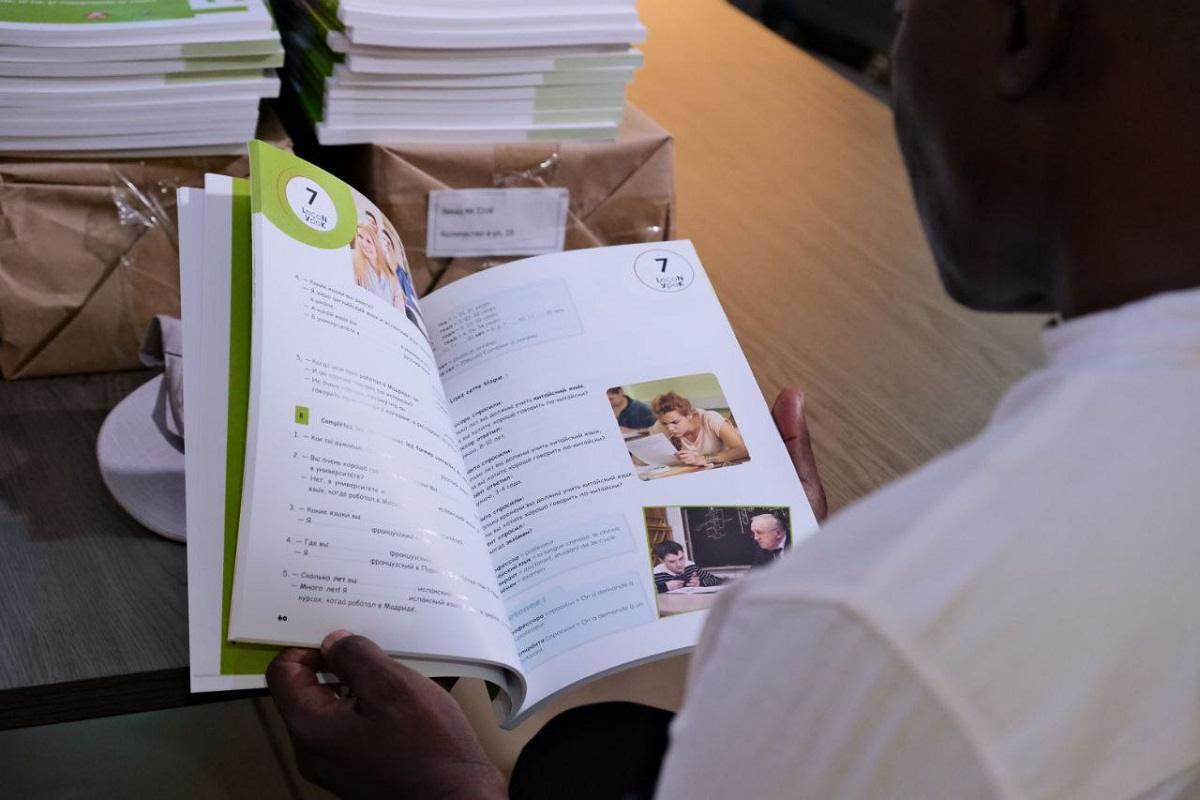
The idea of this textbook was initiated by Malian people who want to learn the Russian language, said Artem Davydov.
We need to cooperate with representatives of the academic community of Mali to more accurately convey the cultural and linguistic realities of the Russian language in the Bamana language.
Artem Davydov, Associate Professor in the Department of African Studies at St Petersburg University
Students in African studies at St Petersburg University were inspired by the idea of visiting the country of Mali with their lecturer. Issa Boubacar Yattassaye, a representative of local business, assisted them. He communicated with Grigorii Kaigorodov, a student at St Petersburg University. The Malian helped Russian students with accommodation, meals, and transfer.
During their visit to Mali, students in African studies served as ambassadors of the Russian language and culture. They told schoolchildren and students about the educational system in Russia and the study of the Russian language. They read books to children in kindergartens. At a music festival in the town of Ségou, they met the famous West African musician Salif Keita. The University students also attended a traditional Malian wedding.
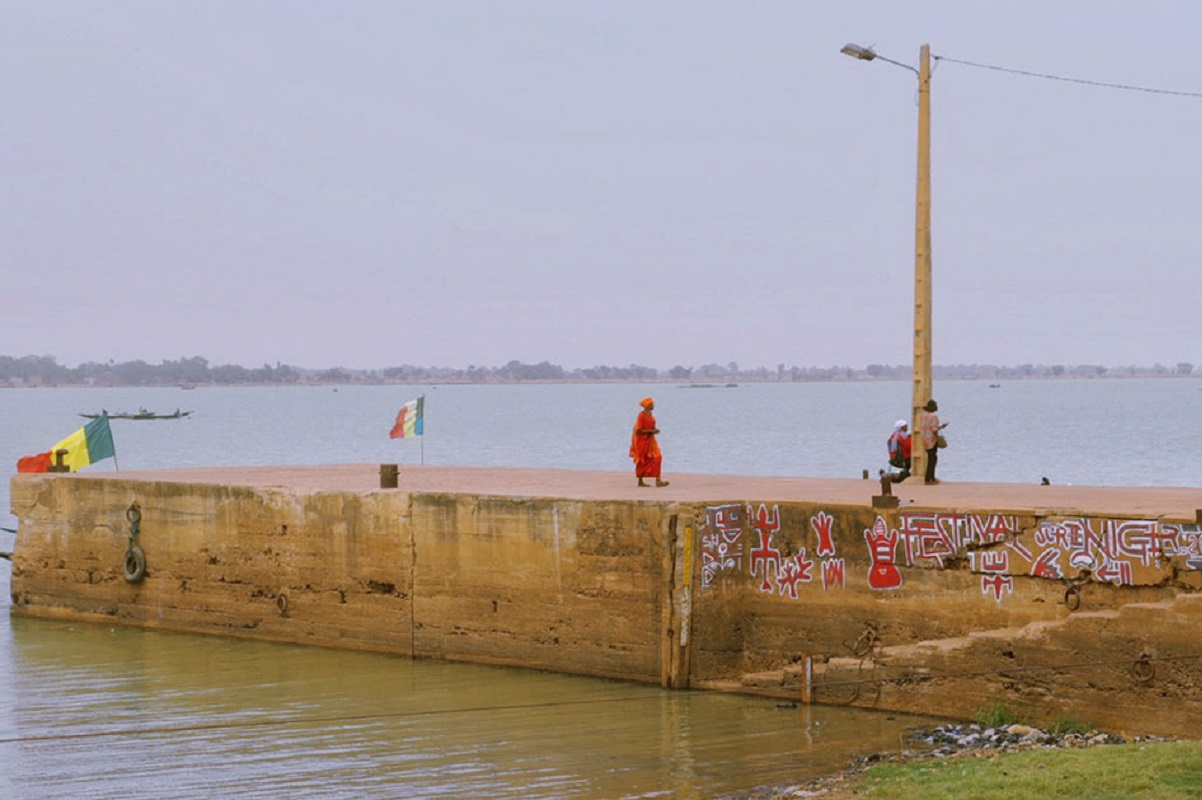
Young researchers shared their impressions at a meeting of the "African Club at St Petersburg University", which brought together lecturers and students in various academic programmes. All guests tried traditional sweets and a delicious Malian drink "bissap", which is known as hibiscus in Russia.
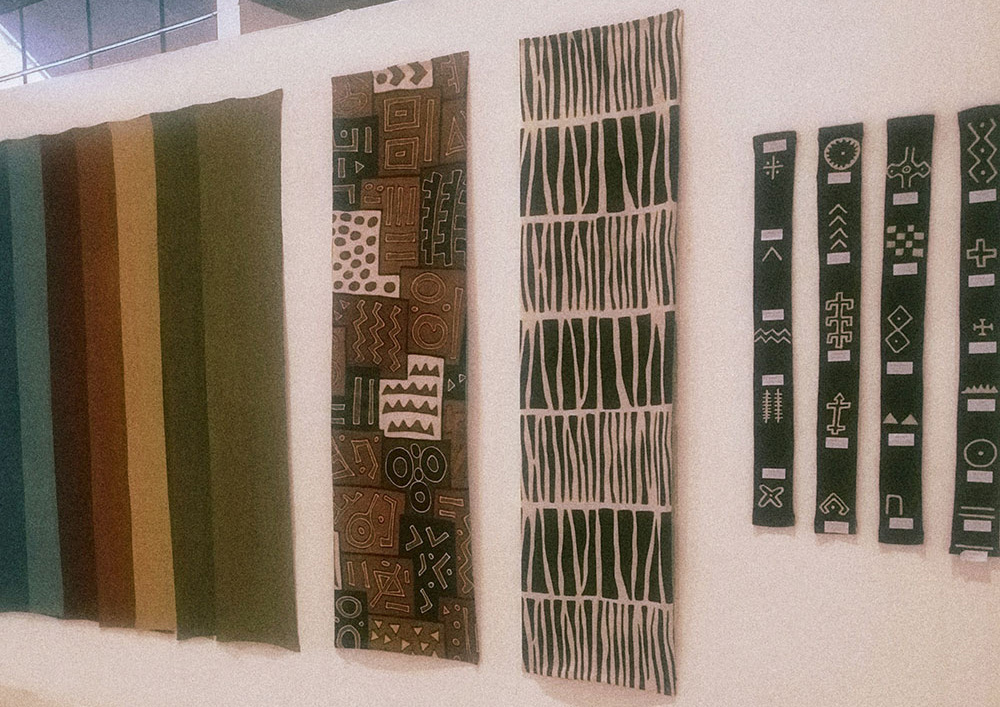
Olga Pevzner spoke about her research on African textiles. From her trip, she brought back many samples of bògòlanfini, or bogolan, i.e. a traditional Malian fabric. In the Bambara language, "bògò" means "earth, clay", while ‘fini’ refers to fabric and the suffix ‘lan’ is added to the word composed by these words.
I visited a workshop and study the entire process of creating fabric. Cotton is dyed with clay, it is hand-sewn in pieces, and the fabric is soaked in a decoction from the leaves of the local Ngalama tree. The product is dried, a drawing-sign is applied to it, on which clay is again applied.
Olga Pevzner, a student at St Petersburg University
Alina Gabitova went to Mali to study the gastronomic culture, which is very different from the European culture. Traditionally, Malians eat without cutlery with their right hand, and women eat separately from men, sitting on a carpet.
'I didn’t really fit into Malian beauty standards, everyone tried to fatten me up. But the food there is unusual, I really missed home-cooked food. What I liked most was the national dish "moni", i.e. porridge that is traditionally eaten for breakfast,' said Alina Gabitova, a student at St Petersburg University.
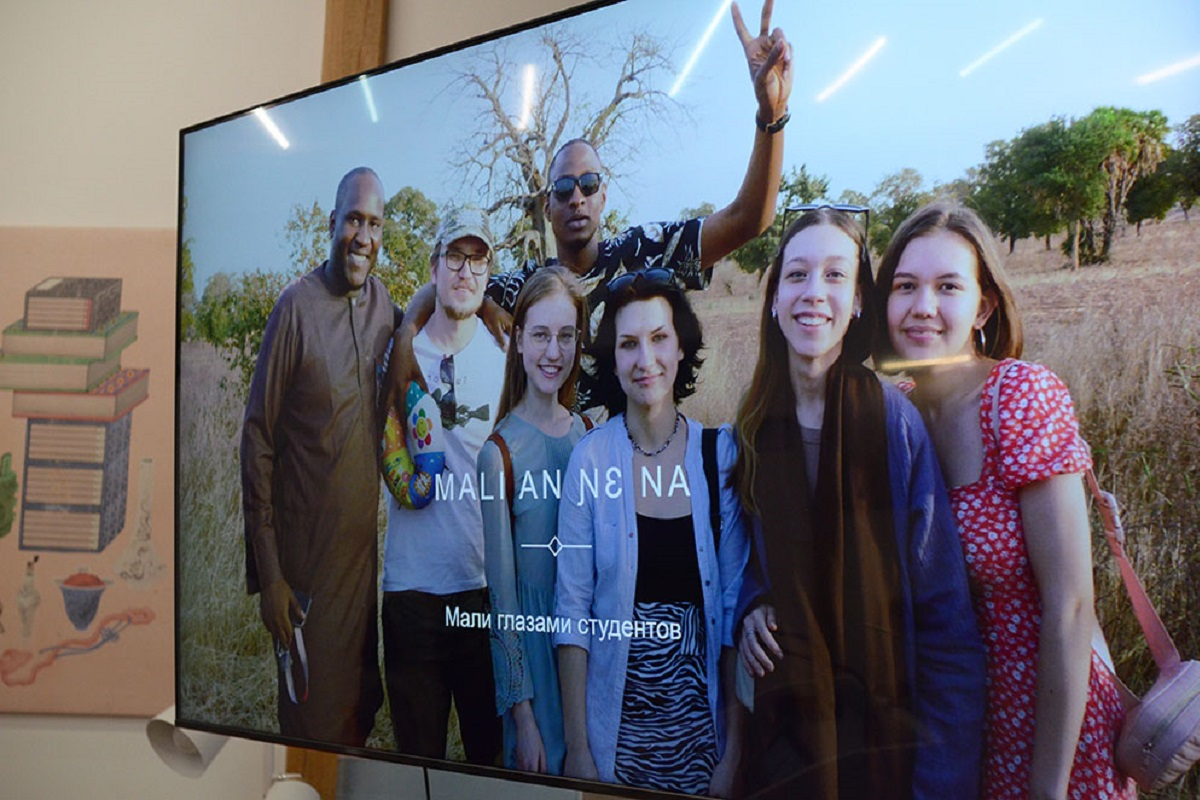
For Iuliia Ilekhmetkina, language practice was a very high priority. Yet, it was a challenge as in West Africa it is not allowed to communicate with a woman unless she is accompanied by a man. "When we did communicate with the locals, I was always very happy that they are open and friendly", she said. 'We learned new terms. For example, "toubabu", which means a European, a colonialist, and has a negative connotation. Yet the locals, having known that we were from Russia, never used this word to refer to us and treated us well.'
The students coped with the main task of an anthropologist in the field, i.e. to see, to understand, and to tell. They made a lot of ethnographic notes about Mali, which would be useful for their further research.


